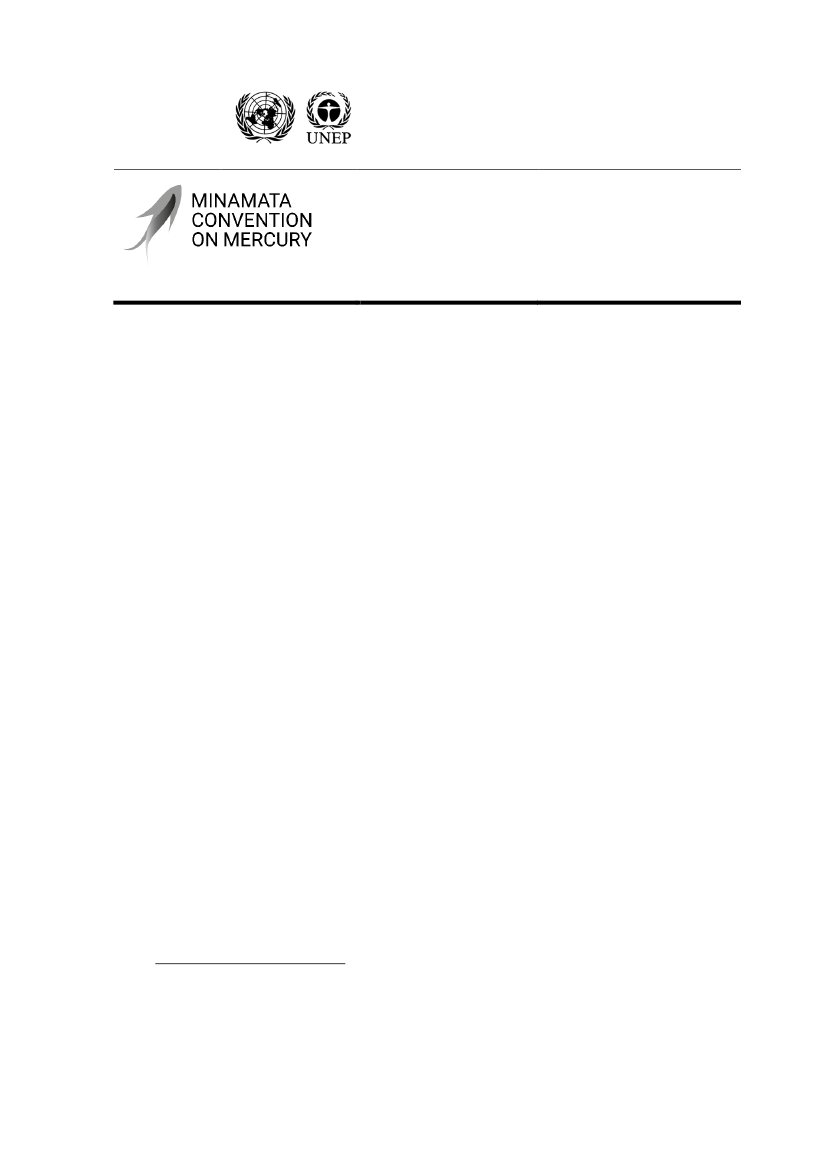
UNITED
NATIONS
Distr.: Limited
20 March 2022
English only
MC
UNEP
/MC/COP.4/L.2
Conference of the Parties to the
Minamata Convention on Mercury
Fourth meeting
Online, 1–5 November 2021 and Bali, Indonesia,
21–25 March 2022
Bali Declaration on combating illegal trade in mercury
We, the Heads of Delegation of the Parties to the Minamata Convention on Mercury
(hereinafter “the Convention”), having met from 21 to 25 March 2022, on the occasion of the fourth
meeting of the Conference of the Parties to the Convention, in Bali, Indonesia.,
Bearing in mind
that the extensive use of mercury in artisanal and small-scale gold mining has
accelerated international trade in mercury, including illegal trade, which has increased in the past
decade, as reflected in some international reports such as
Global Mercury Supply, Trade and Demand
(UNEP, 2017) and
The Illegal Trade in Chemicals
(UNEP, 2020),
Concerned
that this increase in illegal trade is a serious concern which threatens human health
and the environment,
Aware
of the broader negative socioeconomic impacts of the illegal trade in mercury as a key
consideration in the fight against the global threat of mercury to human health and the environment
and in ensuring progress towards the achievement of the 2030 Agenda for Sustainable Development
and the Sustainable Development Goals,
Realizing
that the current practice of illegal trade in mercury is closely connected with, among
other things, the extensive use of mercury in artisanal and small-scale gold mining, the lack of access
to economically viable alternatives to mercury, and trade in mercury using online trading platforms,
Recognizing
that international cooperation is pivotal to addressing both legal and illegal trade
in mercury,
Acknowledging
the need for international support to assist developing countries in combating
illegal trade in mercury and, in particular, the need to strengthen their capacity for mercury
management and control and the need to raise awareness of environmental issues and health
consequences resulting from exposure to mercury,
Reaffirming
the principles of the Rio Declaration on Environment and Development and the
United Nations Conference on Sustainable Development outcome document “The Future We Want”,
1
Recognizing
the complementarity between the Convention, relevant international instruments,
2
internationally agreed initiatives
3
and the need for their full and effective implementation in combating
illegal trade in mercury,
Guided
by the Convention, which aims to protect human health and the environment from
anthropogenic emissions and releases of mercury and mercury compounds by, among other things,
1
A/RES/66/288.
Such as the Basel Convention on the Control of Transboundary Movement of Hazardous Wastes and Their
Disposal and United Nations Environment Assembly resolution 4/8 on the sound management of chemicals and
waste.
3
Such as the Strategic Approach to International Chemicals Management.
2
K2200790
200322